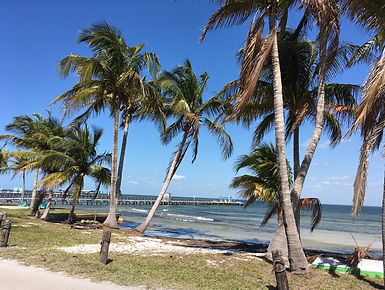Economics

Balancing the needs of ourselves while attending to our obligation to posterity
Traditional economists and politicians sometimes say that environmental protection comes at too high a price to our economy. They often use phrases such as “job-killing environmental regulations”.
From a short-term perspective, this argument is quite understandable. In Florida for example, the existing economy relies largely upon home construction, agriculture, medical services, developing and maintaining infrastructure, manufacturing, mining, and of course tourism. Therefore, when resources are protected through laws or regulation, the first thought for many is that there will be a negative impact to one of these economic drivers.
This sentiment is clearly expressed by the British economist Wilfred Beckerman:
“It is typical of the intellectual confusion in the environmental movement that many of its more extreme activists attack the wicked capitalists and imperialists and related globalization while simultaneously pressuring governments to implement policies that can only impoverish developing countries—simply in order to pander to the prejudices of well-meaning but ill-informed people in the rich countries or to “power-seeking” agendas of bureaucrats.*”
It is hard to deny that many of those seeking environmental protection often are insensitive to these immediate economic concerns, claiming environmental protection is critical for our long-term welfare, regardless of the impact upon economic interests of ourselves.
These different perspectives - those of the economist and the “environmentalist” - can spawn antagonism, often leading to inflexibility, and consequently, resulting in failure to find resolution.
There is an alternative. It begins with both sides recognizing there is legitimacy in both arguments, and then joining efforts to develop a strategy of transition.
It has been said that pollution is nothing more than misplaced resources. Nutrients for example which are quite valuable in the form of inorganic fertilizers, e.g. Diammonium phosphate, become pollutants when they escape into groundwaters and surface waters. Clean-up and/or recovery of these pollutants/resources costs money. Often, when assessing simple monetary costs, recovering resources looks to be more expensive than simply extracting more raw resources.

One Example: Phosphorus
A pound of phosphorus efficiently extracted from phosphate rock may be sold on the market for well under five dollars per pound and still bring a good profit to the mining/fertilizer company. But naturally occurring large scale phosphate deposits represent a finite resource. There is only so much of it that is readily available using existing mining and processing techniques.
Considering current usage, projections call for less than a 40-year supply of phosphate rock in Florida, and Florida is the major provider in the United States. Phosphorus is vital to crop agriculture. How will it be secured once these resources are expended?
Harvest of attached algae from an Algal Turf Scrubber® presently in operation in Indian River County for the removal and recovery of nutrient pollutants from impaired surface waters.
There is phosphorus in polluted waters that perhaps could be recovered. But to extract a pound of phosphorus from polluted water, such as from Florida’s Lake Okeechobee has typically been priced upwards of $200 or more per pound. But there are other economic costs and benefits to consider.
The technological expertise already exists to recover this phosphorus “pollutant” which has escaped into the nation’s waters. This phosphorus can be considered “rogue” phosphorus, and when it is stored in an available form within sediments of major waterways, such as Lake Okeechobee, it is often called “legacy” phosphorus. Recovery of this rogue or legacy phosphorus can provide industry with the phosphorus it needs, while also enhancing water quality; preserving fish and wildlife resources; reducing water treatment costs; and enhancing property values.
In addition, it will facilitate creation of new professional, operational and technical jobs. Potential by-products of this extraction include compost, potting soils, fiber products, biogas, extracts, biodegradable plastics and other materials--materials that will spawn new and emerging businesses.

Windrow Composting of attached algae harvested from an Algal Turf Scrubber® for the removal and recovery of nutrient pollutants from impaired surface waters in Florida. Compost and other marketable products can be generated from Managed Aquatic Plant Systems (MAPS) such as the Algal Turf Scrubber®, opening up the possibility of new agri-industries which contribute to water quality enhancement, while providing jobs and innovative products
When considered from this broader perspective, the true costs and the true benefits are more apparent. Such practices, if developed carefully and with patience, can be developed through a transition program, thereby avoiding traumatic displacement of existing activities.
Natural economic market forces would develop, allowing gradual replacement towards more lucrative and environmentally-stabilizing technologies which, with time and development, can become ever more efficient.
What is needed is the political will to refine existing technologies while developing new approaches. And most importantly, involved social, economic, and political forces need to work together with the available scientific, agricultural and engineering talent to serve the needs of both ourselves and our posterity.
* Beckerman, W. 2003. “A Poverty of Reason—Sustainable Development and Economic Growth” pp47 The Independent Institute, Oakland, Calif. ISBN 978-0-945999-85-0
[3]
[3]

